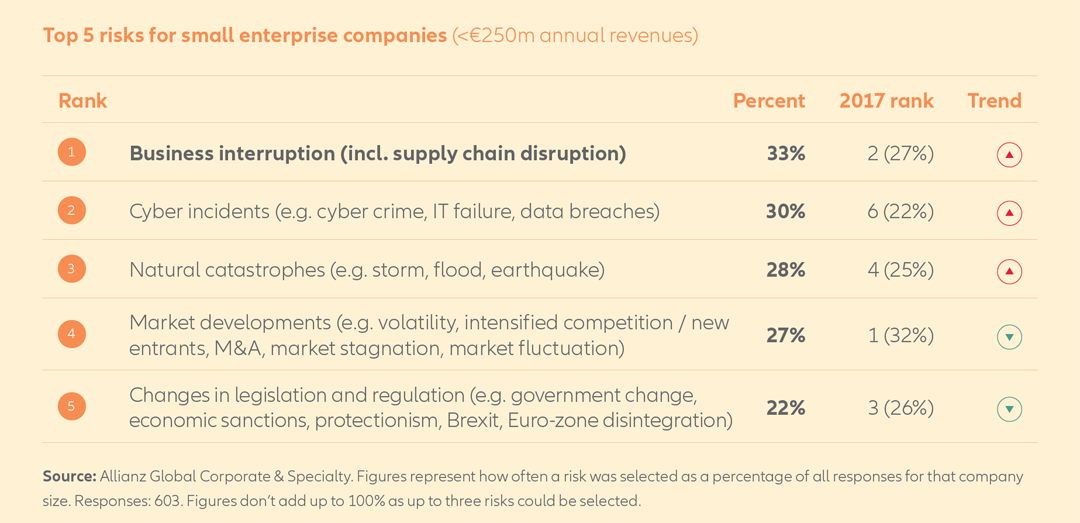
As increasing numbers of cyber incidents occur and are reported, more evidence of its financial impact is available to SME-sized businesses. The impact can be catastrophic. Research shows that in in 2017, the average cost of a data breach in North America was $117,000 for SMEs1, while other studies show that hackers have breached over 50% of small businesses, with these numbers up year-on-year2.
SMEs can be vulnerable as many do not have sufficient revenue to afford their own IT departments or access to the knowledge and resources to protect themselves against evolving threats. They can be particularly susceptible to phishing attacks via email or fraudulent activity happening in their e-commerce storefronts.
Employing a Chief Information Security Officer (CISO) who can implement a comprehensive information security management system is considered a must in combatting the cyber threat but this can be costly and time-consuming and is often beyond the financial reach of many SMEs. However, AGCS has partnered with Silicon-Valley based software company Zeguro to implement a “virtual CISO” platform as part of its insurance coverage, which enables SMEs to access tailored security recommendations and training for employees, helping to reduce the overall risk of financial loss following an incident.
“Cyber insurance used to be a confusing and relatively expensive cover for SME-sized businesses. However, as coverage has become more available, affordable and easier to understand, we are seeing more demand,” says Markovina. “Activity around cyber will only accelerate in the SME space through 2018.”

SOURCES
1. Kaspersky Lab
2. Ponemon Institute, 2017 State of SMB Cybersecurity Report















